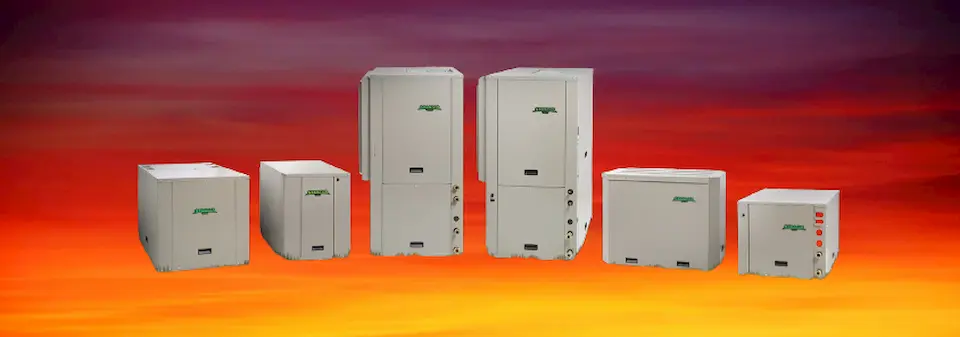January 23, 2023
Complete Guide To Geothermal Heat Pump Installation

If you are in the market for a new HVAC system to heat and cool your home, consider replacing your old, existing furnace with a geothermal heat pump system. A new heat pump that draws its energy from ground sources is affordable, energy-efficient, eco-friendly, and offers other great benefits to homeowners.
Our geothermal system installation experts at Bowman Mechanical Services are offering our complete guide to geothermal heat pump installation. We are here to help Raleigh and Garner area residents just like you make informed decisions for choosing a new heating and cooling system for North Carolina homes.
Introduction to Geothermal Heat Pumps
What exactly is a geothermal heat pump, and what sets it apart from other systems for heating and cooling? A geothermal HVAC system draws heat from the Earth and uses it to heat your home. Conventional heating systems burn oil to heat your home, using more energy to burn environmentally harmful fossil fuels.
A geothermal unit not only reduces the use of harmful fossil fuels but also offers long-term cost savings on electricity. When you have this new system installed to heat and cool your house, you are reducing your carbon footprint while enjoying the benefits of energy savings, tax rebates, and more.
Overview of Geothermal Heat Pumps
When someone first learns about geothermal heat pumps, it’s normal to have a lot of questions or even skepticism about how they work. For years we have relied on natural gas, other fuels, and electricity as sources to generate heat. To ease any worries about the performance of ground source heat pumps, let’s look at the details of how they operate.
Benefits of Installing Geothermal Heat Pump Systems
- Lower cost: A geothermal heat pump saves homeowners between 30-60% on heating costs and between 20-50% on cooling costs.
- Fast return on investment: While geothermal systems can have higher initial costs than most other HVAC units, the overall cost savings will be seen within only a couple of years of your unit’s new construction.
- Environmentally friendly: A geothermal system is one of the most eco-friendly ways to generate heat in and out of your home. Using less energy to operate, heat pumps lower your carbon footprint and lower air pollution caused by harmful greenhouse gases used in other systems.
- Quiet operation: There is no annoying noise when a heat pump turns on and off like with other types of units for heating and cooling.
- Safe for you and your home: Since no combustive materials are used, a geothermal heat pump is safe to use and clean.
- More comfortable: Geothermal heat pumps have been proven to improve the air quality in your home. If someone in your household has allergies or asthma, a heat pump unit will be much more pleasant as it operates to create an ideal balance of dehumidification and air purification.
- Tax benefits: Local governments reward homeowners who install environmentally, energy-saving solutions in their homes, so anyone who installs a heat pump will receive tax benefits for it.
- Long lifespan: Indoor components of the heat pump can last up to 25 years, while the ground loop system can last up to 50 years. This significantly surpasses the lifespan of other HVAC units.
- Can be installed in all homes: Whether you install your heat pump in a new construction home or retrofit situations where there is existing ductwork, your home improvement efforts of installing a geothermal system will be well suited to any home environment.
How Do Geothermal Heat Pump Systems Work?
Heat is exchanged between the ground and the air when a heat pump is installed. A geothermal system differs from a conventional system like a furnace by moving heat from one source to another. Through a system of geothermal ground loops, your new heat pump unit will transfer heat from the ground to warm your home in the winter. In the summer, the geothermal heat pump will draw heat out of your home, and transfer it back into the ground. This transfer works to keep your house cool in the warmer months.
Geothermal Heat Pump Unit Types
There are several types of geothermal heat pump installations. Which type of unit will work best for your home will depend on the climate where you live, soil conditions, the size of your home that needs to be heated and cooled, and the local costs for the installation process.
Horizontal ground loops, vertical systems, and pond or lake loops are closed-loop systems that circulate heat through underground pipes. Open loop system pipes use a nearby water source like a well to circulate heat.
- Horizontal system: Horizontal ground loops of layered coils and polyethylene pipes are buried in six-foot-deep trenches. This type of heat pump installation is ideal for approximately 2,000 square foot homes that have large ground space of up to 400 feet to build the trenches.
- Vertical system: On properties with a limited amount of ground space, a vertical ground loop installation requires four-inch diameter holes to be drilled at 100 to 400 feet deep into the earth.
- Pond/lake loop: Draws heat from a nearby lake or pond through a blanket of water that covers 10-foot-deep coils that are anchored onto racks to generate through the closed loop system.
- Open loop: Open-loop pumps are water source heat pumps that use a nearby water source like a well. The pipe system cleans ground water to generate through the system and transform it into heat for your home.

Preparing for Geothermal Heat Pump Installation
If you are ready to convert your existing HVAC system into a geothermal heat pump system, our HVAC system installation professionals are happy to help you prepare your home for your new heat pump unit.
Evaluating Your Home’s Capability
When you make the decision to install a geothermal system on your property, one of the first steps is to evaluate your home’s capability through a heat pump inspection. Make an appointment with a local HVAC contractor to determine the heating and cooling needs of your home.
They will likely perform what is called a “Manual J” calculation. This includes evaluating the following details of your home:
- Square footage.
- Insulation.
- Use of the space.
- Calculate BTUs based on the number of people who live there, the number of windows, and the number of doors in the home.
By looking at the details above, your contractor can then calculate the amount of energy needed to heat and cool your home.
Selecting the Right Contractor
It’s important to select a local contractor with experience with the geothermal heating and cooling installation process. It’s always a good idea to read online reviews of your HVAC company as well as get opinions for several contractors. The process of installing ground source heat pumps is intensive, and should only be done by reputable, knowledgeable, and seasoned pros.
Bowman Mechanical Services is confident that we offer the very best geothermal unit installation, with our licensed contractors experienced in installing and repairing heat pumps all over the Raleigh area.
Determining an Appropriate Location for the System
There are certain land and soil requirements in order for your property to be a candidate for the installation of heat pump heating and cooling systems. Your heat pump experts will assess your candidacy for a heat pump based on:
- The soil heat transfer rate.
- Availability of space to install ground loops.
- The amount of water saturation around your home.
Securing Necessary Permits and Approvals
The installation and maintenance of a geothermal heating and cooling system with ground-source heat pumps require permits and approval. To begin the installation process, you must have approval from local officials that your property will undergo a ground loop installation by a licensed geothermal heat pump contractor.
The Geothermal Installation Process
Once you secure your professional HVAC technicians and are approved for your new heat pump permit, it’s time to undergo the geothermal installation.
Step 1: Drilling and Ground Loops Installation
With the use of heavy machinery, trenches will be dug on your property to allow for the installation of the ground loop piping into the earth.
Step 2: Ductwork Installation (If Applicable)
If you have adequate existing ductwork, this step will not be necessary, but for homes that do not have existing ductwork, new ductwork will be installed to connect the ground loops to your heat pump.
Step 3: Heat Pump Installation
The heat pump unit will replace an existing furnace, boiler, or HVAC system. After removing the old system, the heat pump will be installed in its place to connect to ducts that connect to the ground loop system.
Step 4: Wiring Connections
Your heat pump system will be connected to the electricity in your home through connective wiring, making sure there is power generated to operate the system. Your new heat pump is assessed for proper operation and safety before the job is complete.
How Much Does It Cost To Install A Geothermal Heat Pump?
A geothermal system can cost anywhere between $18,000 to $30,000 for the average homeowner, but higher-end ground source heat pumps can cost up to $45,000 for the entire unit and installation.
It’s best to receive a quote from your trusted home heating and cooling professionals to determine the cost of your new heat pump system, but it’s important to note that most units pay for themselves in energy-saving costs within 3 to 5 years of installation.
Contact Bowman Mechanical For All Of Your Geothermal Heating And Cooling Needs
Are you ready to make the money-saving leap of converting your HVAC system to a geothermal ground heating and cooling system?
The expert contractors at Bowman Mechanical Services are happy to help you evaluate your home for heat pump eligibility and to install your new energy-saving heating and cooling unit.
Call us today at 919-679-9756 or reach out to us to schedule your free estimate on heating and cooling repairs and replacements.

